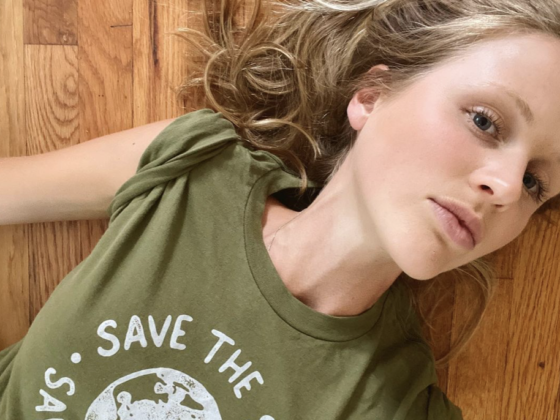
By Esosa Noruwa
At 18 years old, Essena o’Neill, an Australian ‘influencer’ known for opening up Veganism to many, quit social media completely in 2015 after reaching half a million followers on Instagram. Her decision was not because she experienced bullying per say, but because of the deception and façade of social media compared to real life, which she contributed to until she decided it was time to let people know on what really goes on in the world of models and influencers.
On the other hand, in 2015 I was waking up to the fact that young people through social media were being seen and heard, and most alarmingly, were changing their lives and being given opportunities. YouTube was saturated, not as much as it is now, young people were doing many things – some incredible, some funny, some political.
It was then that I started noticing my issues with mental health. I compared myself to the likes of Amanda Stenberg, the entire Art Hoe Collective crew and later Essena o’Neill. I would check my phone for likes at least six times every five minutes after making a new post. There was no education on how to manage your mental health alongside social media and arguably still isn’t.


Role of likes now
I asked myself, how and why did likes come to be so important in the first place? The straightforward answer is that likes signify the opinion of other people on us and are useful when promoting oneself or business, but from lengthy captions to art pieces and social campaigns, many have clamored about the effect of likes on mental health and urged to change.
Multiple stories have emerged about the negative impact of cyber bullying and harassment happening to famous and non-famous people alike. In her documentary ‘Odd One Out’, Little Mix’s Jesy Nelson said ‘I just remember thinking “this is never going to go. Like, I’m going to constantly wake up and just feel sad for the rest of my life so what is the point in being here”’.
There is a science to all this too. Studies have shown that likes give us a physiological high and trigger the reward cycle so the more likes we get the more we want. It is logical to say that the removal of like counts will cause an improvement in mental health and social wellbeing however, there are groups of people who will be impacted in a less favorable way.
In this day and age no one like to be put in a box, however, Instagram offers three types of accounts (personal, creator and business) so the change will affect each category of user to varying degrees. The removal of likes on personal accounts will likely relieve users of comparisons they might make between themselves and their friends and influencers. For creator accounts, it is likely to have a bigger impact as some creators and influencers rely wholly on likes, follows and post engagement for their income and livelihood. Similarly, businesses and brands will be impacted too. Smaller brands especially, may experience unbalanced exposure and may perhaps be unable to afford other means of advertising to bring awareness to their products or services.
When looking at the pros and cons, I came to the conclusion that many of the pros are rooted in mental health (of “regular users” and “influencers”) and the cons are derived from the effect on influencers and brands or business who are benefiting from it monetarily. That being said, it is hard to determine how the change will affect Instagram as a company. Many people have voiced out their frustrations with the ever-changing algorithm so this may be the beginning of the end for them should they implement it officially but only time will tell.

What can be positive?
- The change will shine a light on the inner workings and psychology behind industry use of social media marketing and advertising in negative ways.
An awareness of the detrimental effect on those who are influencing large audiences in many ways
Younger generations will not be born into a world hungry for approval and validation where worth is measured by numbers
What can be negative?
- Those looking to start being influencers or up-and-coming influencers will find it harder – opportunities and earnings.
- Brands will find it harder to find the right person to market their product or service. – Success, growth.
- Followers can be bought, however likes and comments are more authentic metrics therefore brands will find it harder to gauge areas of success and improvement.
- Not seeing numbers can decrease motivation for pursuing and creating good content.
I believe we need that change and change is hardly ever absent of risk. It thrills me to think that if this is successful it will likely bring us one step closer to realigning the way we as a society view ourselves and each other and I look forward to that.

Esosa Noruwa
Esosa is a life and style blogger and advocate for modest fashion. She enjoys taking pictures and asking people questions on current topics and issues. You can find out more about her on her blog Life from Lemons.










3 comments
Comments are closed.